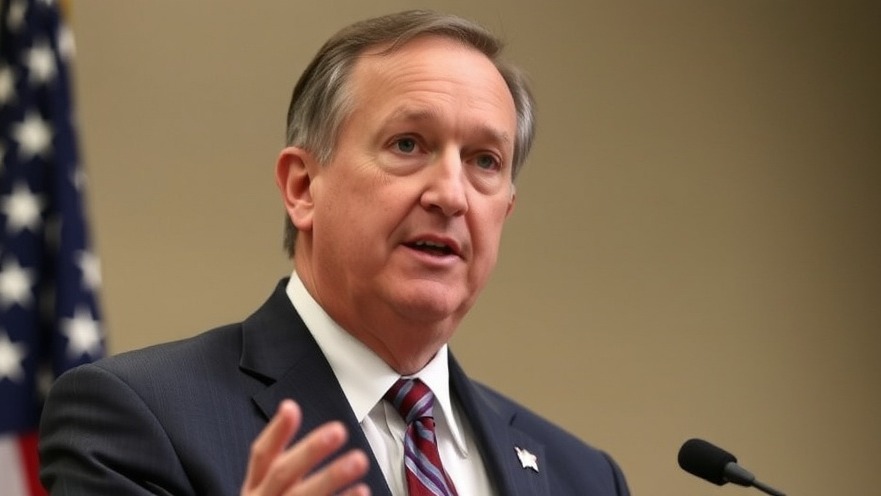
A High-Stakes Legal Battle Unfolds in Texas
In a dramatic turn of events surrounding the fate of Robert Roberson, Texas Attorney General Ken Paxton has formally requested a new execution date for Roberson, who has spent two decades on death row. This move comes despite Roberson's active appeal, opening doors to a complex and contentious legal situation that brings ethics and questions of justice into sharp focus.
The Controversial Case of Robert Roberson
Roberson was convicted in 2003 for the tragic death of his 2-year-old daughter, Nikki, whose diagnosis of shaken baby syndrome has recently come under scrutiny. The father has consistently asserted his innocence, claiming that new scientific evidence indicates Nikki actually died due to a severe illness exacerbated by harmful medications she was given, rather than from any alleged abuse. His situation has sparked a fierce debate about the reliability of past diagnoses and the state of forensic science.
A History of Delayed Justice
In a noteworthy twist, Roberson's execution was slated for October of last year but was delayed following intervention from the Texas legislature. Lawmakers, some of whom expressed belief in Roberson's innocence, compelled him to testify at a committee hearing. The ensuing clash of powers between the executive and legislative branches led to a temporary halt of his execution by the Texas Supreme Court, exemplifying the high stakes and political dimensions at play.
The Unusual Involvement of the Attorney General
Attorney General Paxton’s decision to take over Roberson’s case is a key point of contention. While it is typical for the AG's office to step in when local prosecutors face conflicts or resource shortages, the circumstances here are quite different. Forsaking the long-standing strategy employed by Anderson County District Attorney Allyson Mitchell, Paxton's involvement raises eyebrows and concerns about the motives behind the request for a new execution date.
Undermining Local Authority?
Critics, including Roberson's attorney Gretchen Sween, question the wisdom of allowing the AG's office to take control after years of local legal deliberations. Sween stated, "I have never heard of the AG taking over a state court representation after the local DA's office has been handling the case for years," highlighting a significant shift in procedural norms. This situation spotlights the necessity for accountability and a thorough examination of what is at stake for Roberson.
A Compelling Case for Reassessment
As Roberson's appeals progress in the face of renewed execution efforts, the case raises critical questions not only about individual justice but also about systemic flaws in the capital punishment procedures within Texas. The courtroom drama surrounding Roberson's execution is as much about ethical lines in law as it is about capital punishment's future in America.
What’s Next for Robert Roberson?
If a new execution date is set, it could occur in as soon as 90 days. Lawmakers and advocates for justice reform are closely monitoring the developments, indicating that Roberson's case may serve as a touchstone for broader discussions about the death penalty and wrongful convictions in the state. The lines drawn will likely resonate far beyond this singular case, influencing future death penalty debates in Texas and nationwide.
Engaging with the Community: The Path Forward
As more details surface and the story continues to unfold, it becomes clear that engagement from the community and transparency from the legal system are crucial steps toward achieving justice. Texans are encouraged to stay informed about developments in this high-profile case and its implications on the justice system.
In conclusion, Robert Roberson's case exemplifies the complexities and potential pitfalls within the Texas judicial system. It invites community involvement and critical discourse regarding capital punishment, the reliability of forensic evidence, and ethical responsibilities of legal representatives.
 Add Element
Add Element  Add Row
Add Row 



Write A Comment